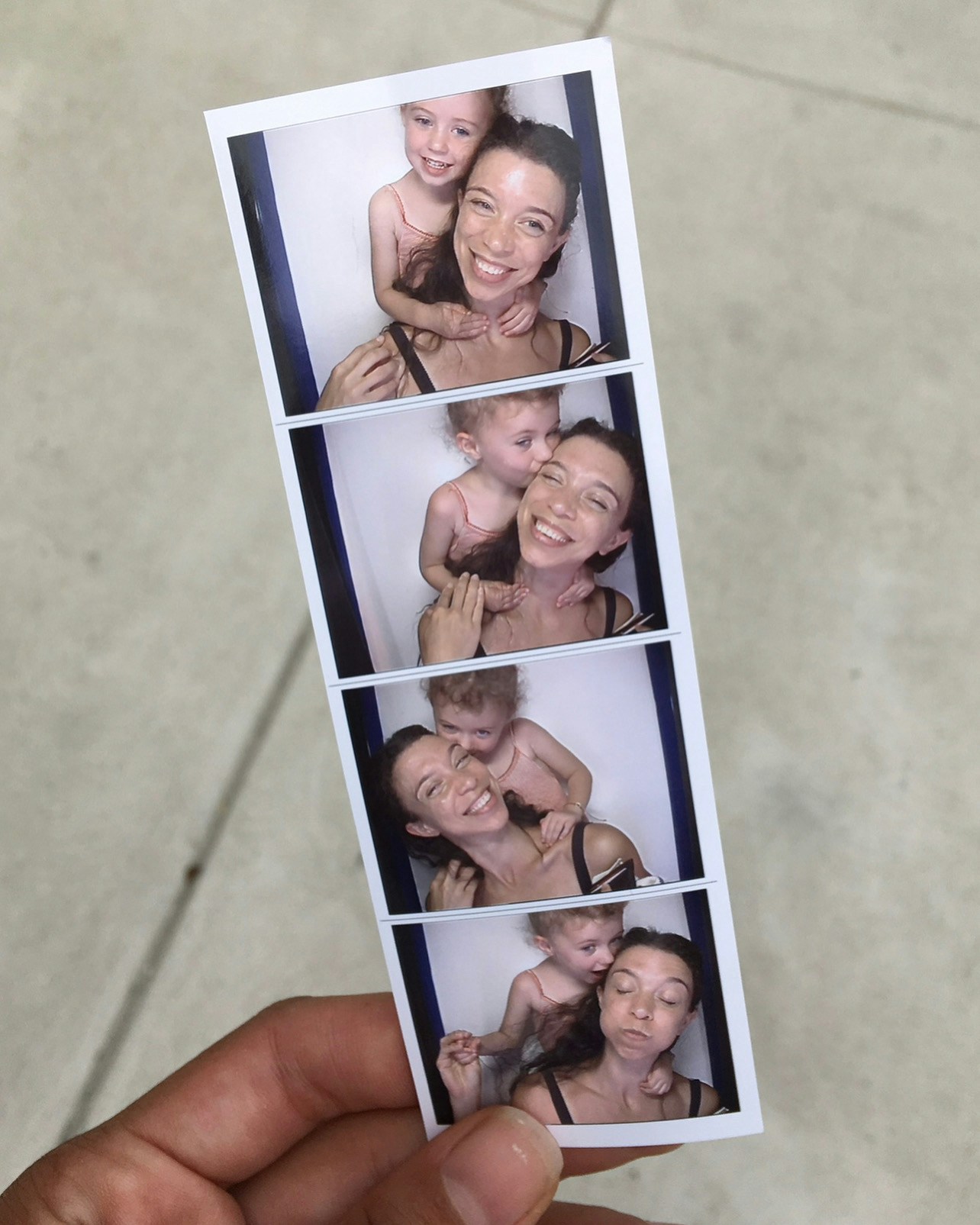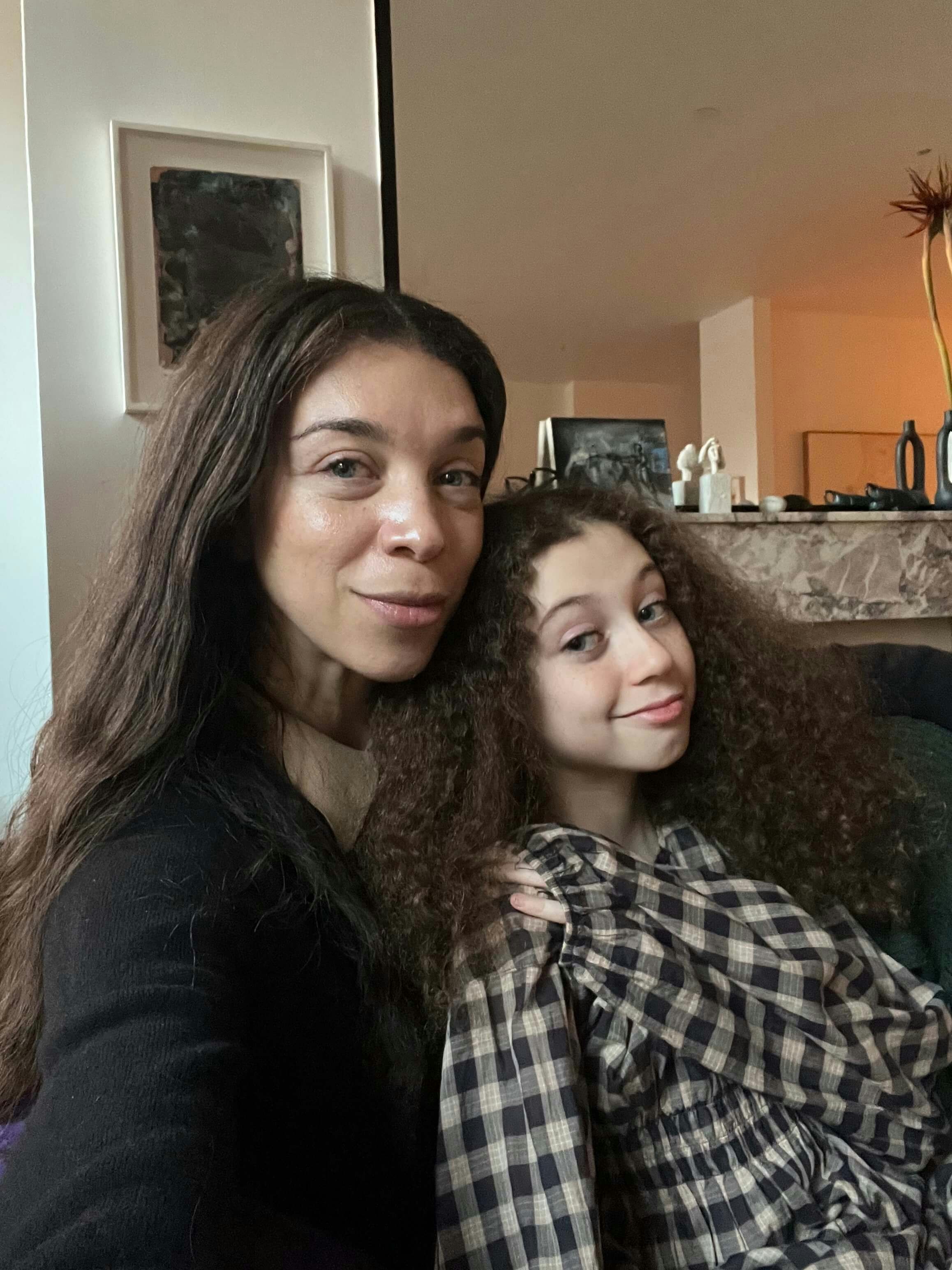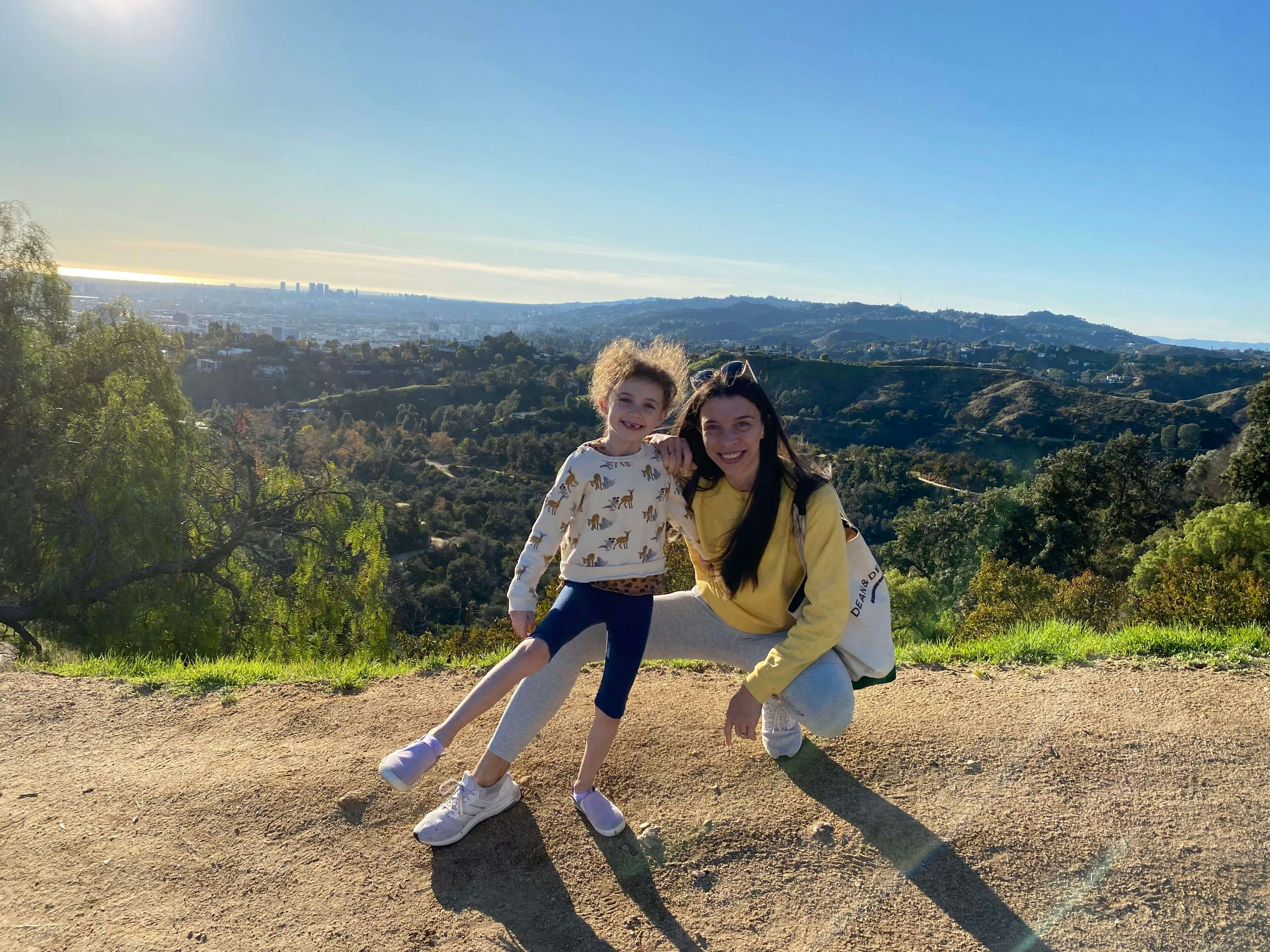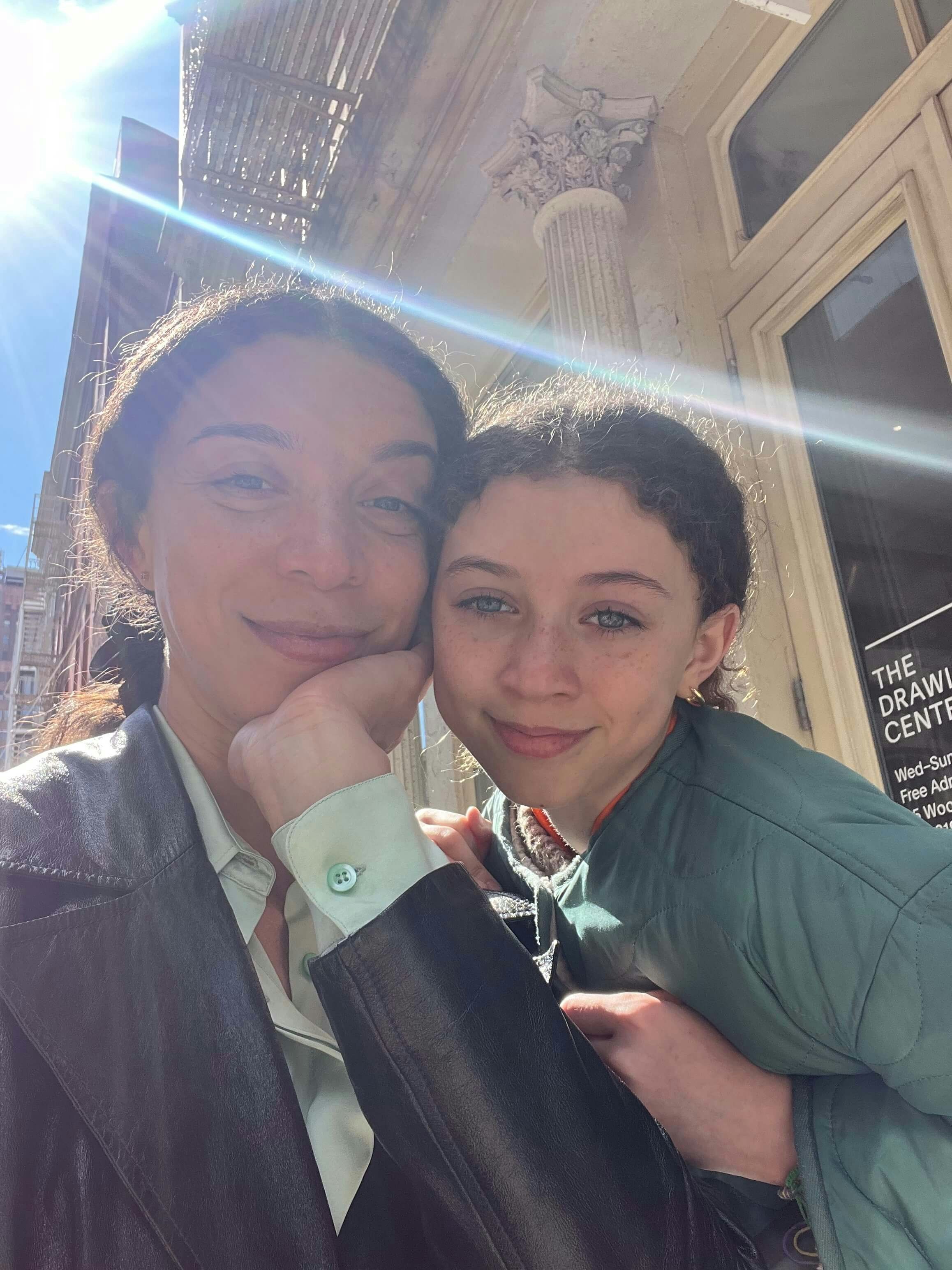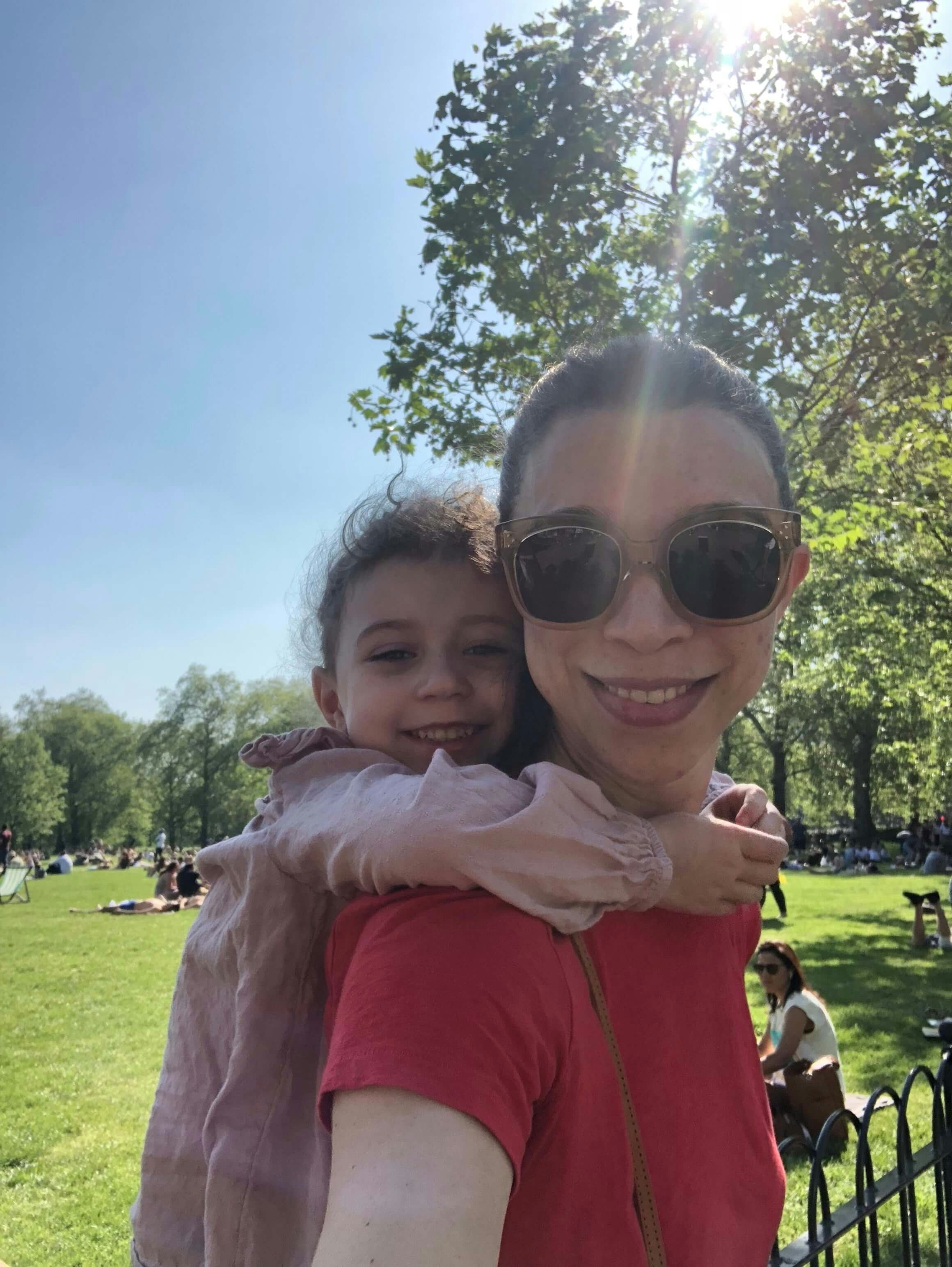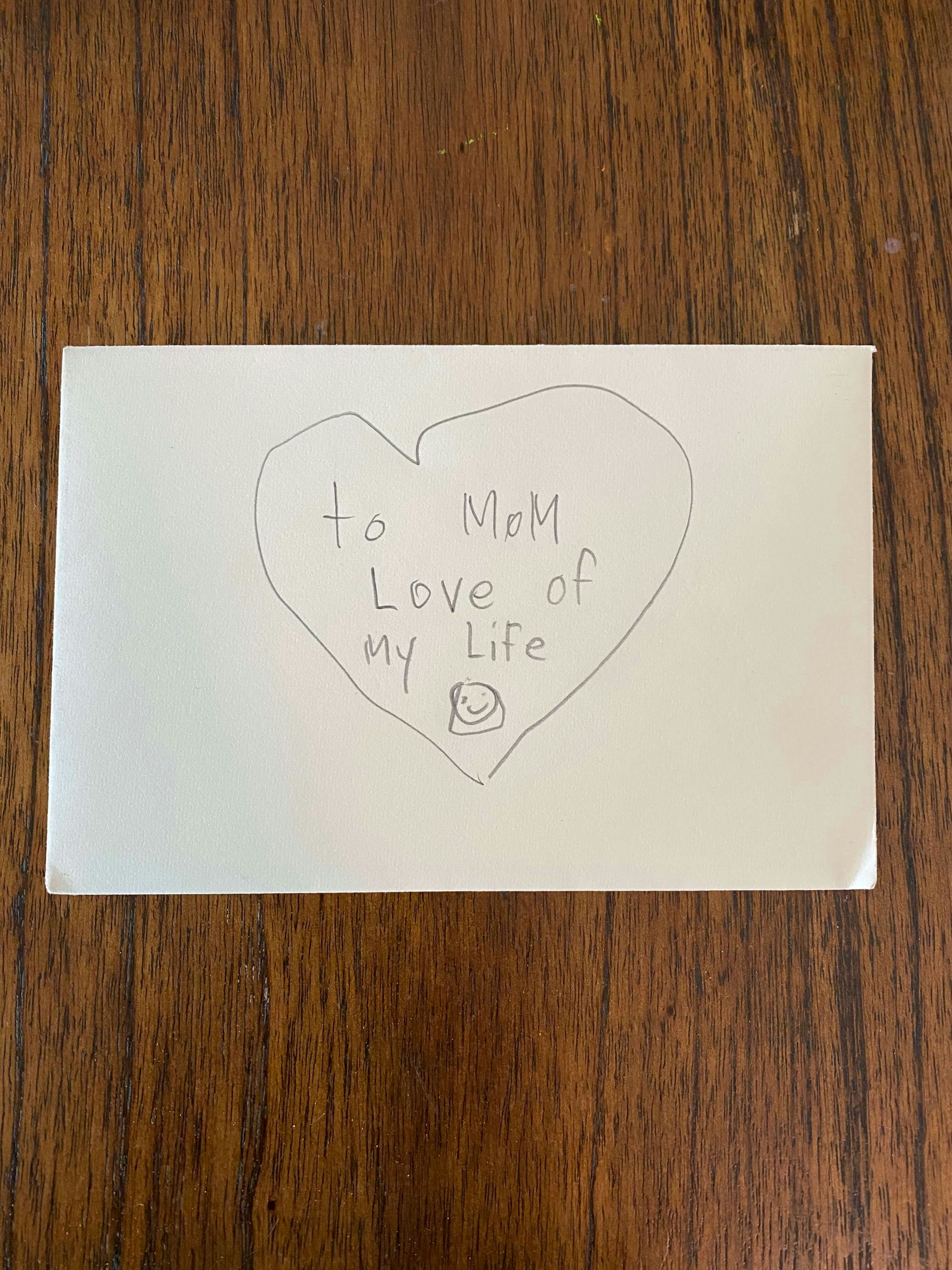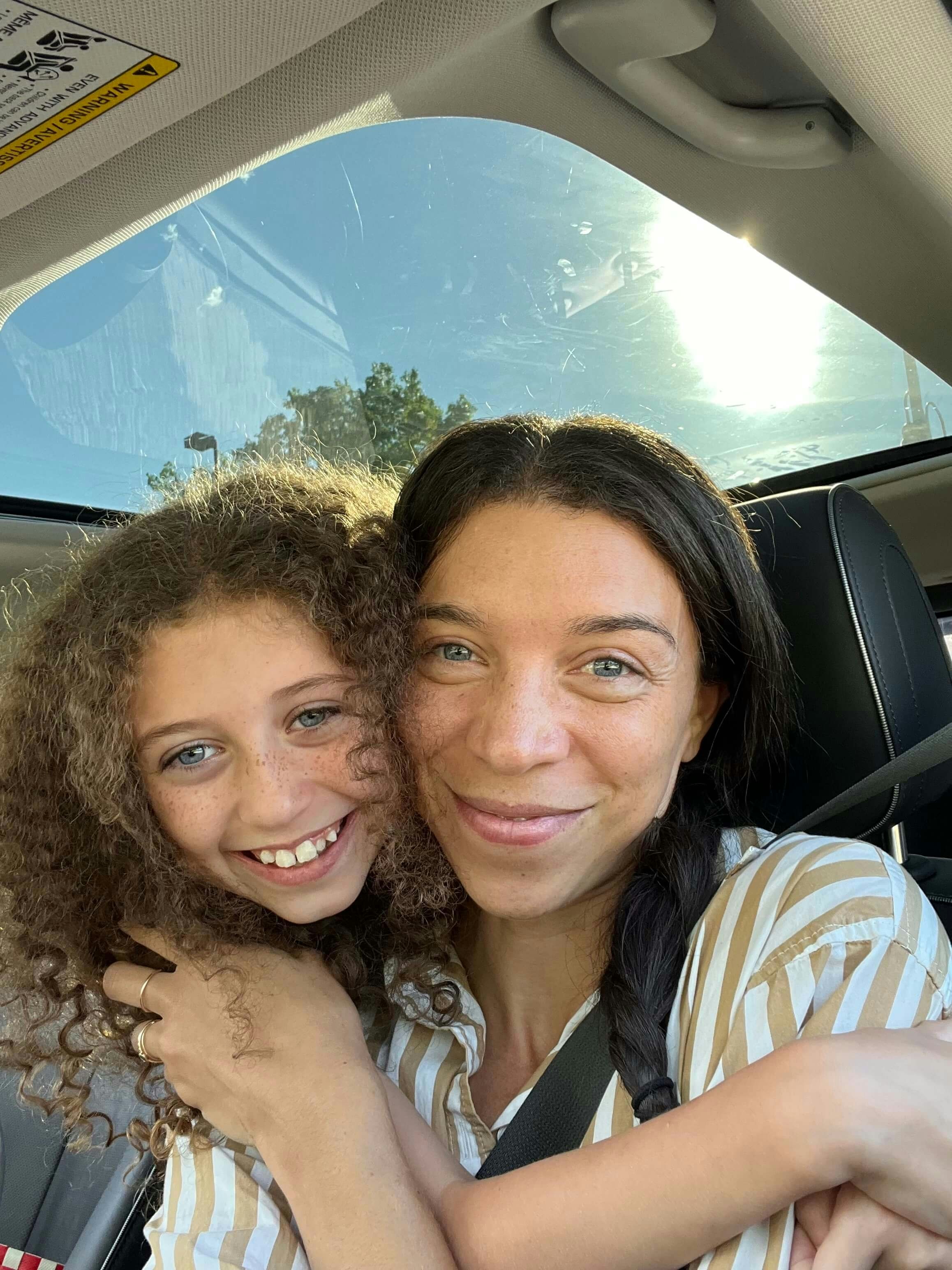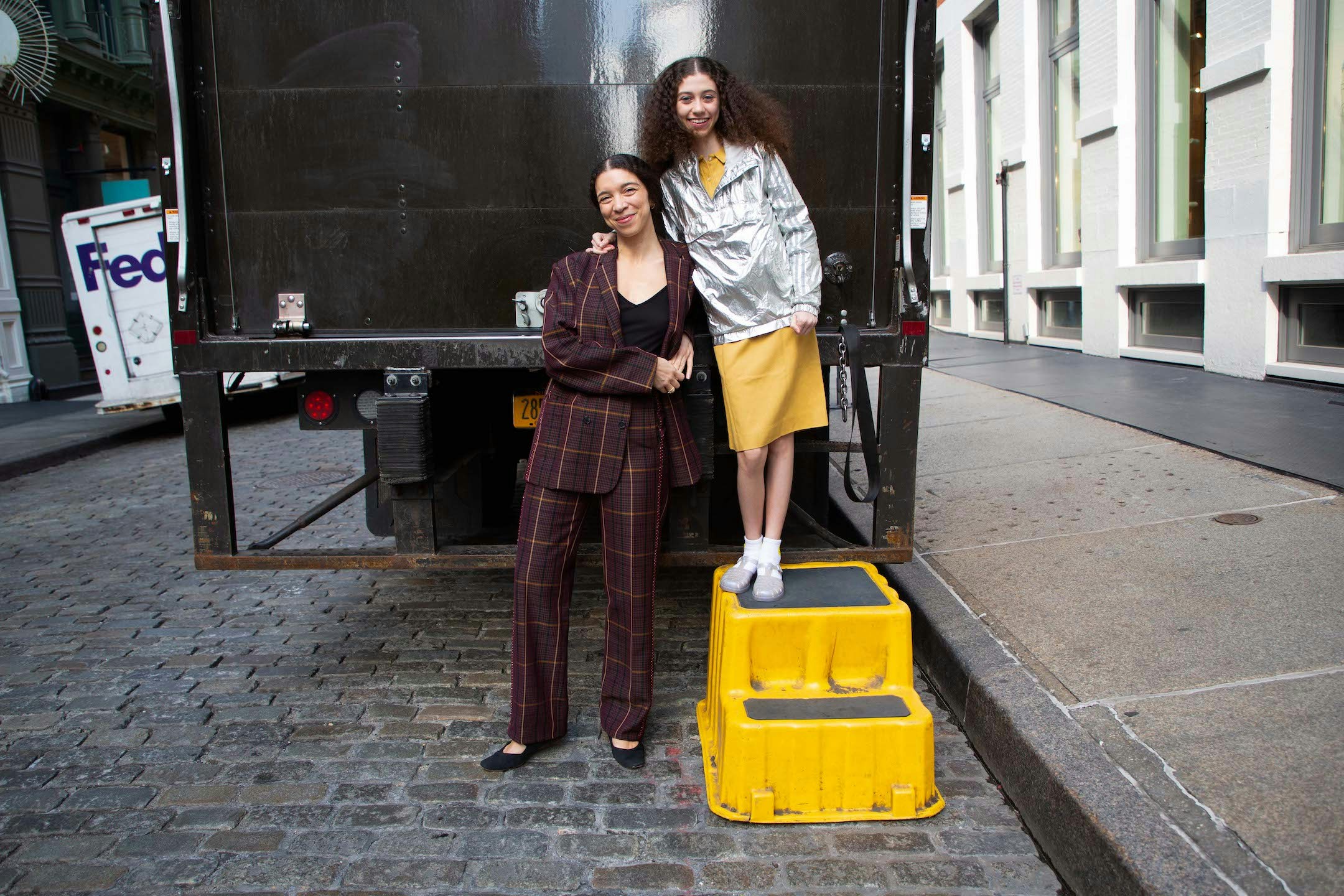
Getting Sticky With Anja Tyson
Words by Emily Ruane
Photos by Tommy Rizzoli
Whether you’re transfixed by her spoken delivery or reading one of her painstakingly-worded and gently incisive Substack missives, engaging with Anja Tyson is sure to leave you better off. A lifelong New Yorker and career brand consultant, Anja gave birth to her daughter, Matilda, at 28, an age where most of her peers were just finding their footing. For nearly 12 years, she’s faithfully documented her parenting journey with an intimacy and intensity that feels like a one-on-one conversation.
Improving everything about the world around her is core to Anja’s “brand,” for lack of a better word, and her generosity comes in many forms. Maybe it’s a stream of gentle reminders to her inner circle about ways to be charitable—she has a laundry list of community aid organizations that she tracks at NeverSleeps.
Or, perhaps it’s philosophical fashion advice outlined in her Substack, which focuses not only on showcasing her personal style but includes guidance for keeping and wearing the clothes you already own and love.
There’s also the art and cooking zine Food Is A Mother, which Anja publishes in collaboration with Mother Tongue magazine to fundraise for the parenting nonprofit Little Essentials. Self-described as the “caregiver” among her friends from a very young age, she seems to approach everything she does with this title in mind.
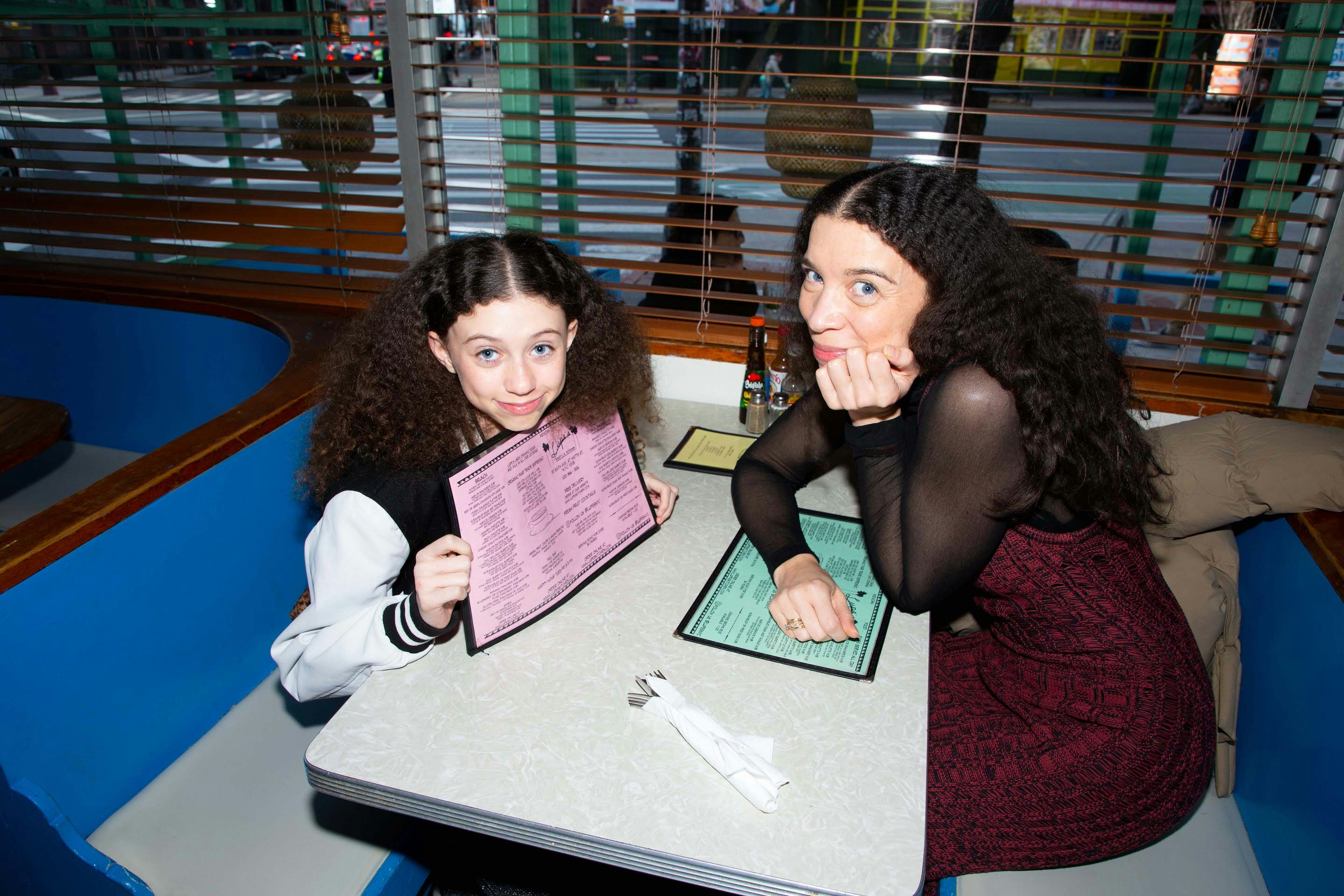
The perfect shitstorm of otherness
I got pregnant when I was 28, which I realize everywhere outside of the New York City metropolitan area makes me an older mother, but here in NYC I was a teen mom. A lot of people who were a couple years older than me were having them, so I just felt like a kid. I was a fully formed adult at that point, but it still felt like I was like the little girl, at the table bouncing her baby, like, What do I do now? I didn’t have a ton of advice. I was raising Matilda alone and without help, and then her dad passed away just before she turned three. I became a solo parent with a deceased other parent…
For my entire life I have felt like an other—at this point it’s so ingrained in my personality that even when I am not an other I still feel so fully outside the circle of normal. Other is my comfort zone, and this was the perfect shitstorm of otherness. I’m a younger mom, I’m one of the only solo parents I know, and now I have to explain a dead parent to my child and the rest of the world. And I was like, okay!
No one wanted kids around
I got really lucky because I worked with a fellow mom while I was pregnant, who was such an amazing woman. She had just had a baby and was in the process of having another baby right after Matila Matilda was born. I was in such a comparatively safe space, but generally no one wanted to hear about parenting, especially in the fashion industry. No one wanted kids around. It was an anathema. There was so much shame around having a child on the weekends when I had to go see seat a show. I don’t have a place to leave her on a Sunday – so she’s coming with me to see seat this runway show at the press agency. She would cry, and people would be like “Can you just suffocate her?” I was talking to this mom at an event the other day who has a child similar in age to Matilda and was saying the same thing. Platforms like Spread the Jelly or Mother Tongue were all mostly started by people who had children during COVID or after, so not only did that not exist, it was unwelcome. It’s one of the reasons I started talking about parenting on Instagram, because there was no other place to talk about it. As a solo parent trying to make it work on one income, it was super tough and it remains super tough. It’s not like I could leave her babysitter every other night and meet up with friends. Social media became a real tool for me to stay connected to people.
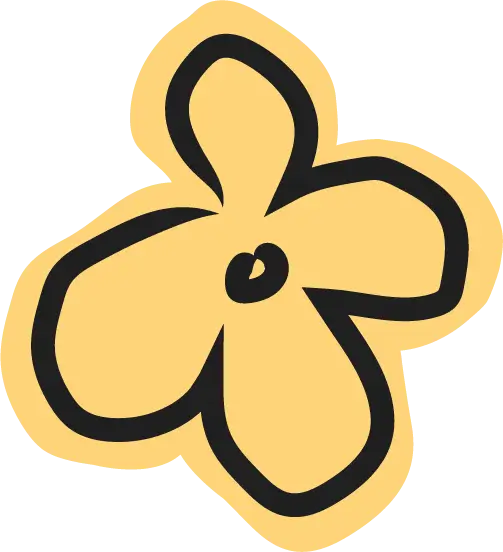
"It’s one of the reasons I started talking about parenting on Instagram. As a solo parent trying to make it work on one income, it was super tough and it remains super tough. It’s not like I could leave her babysitter every other night and meet up with friends. Social media became a real tool for me to stay connected to people."
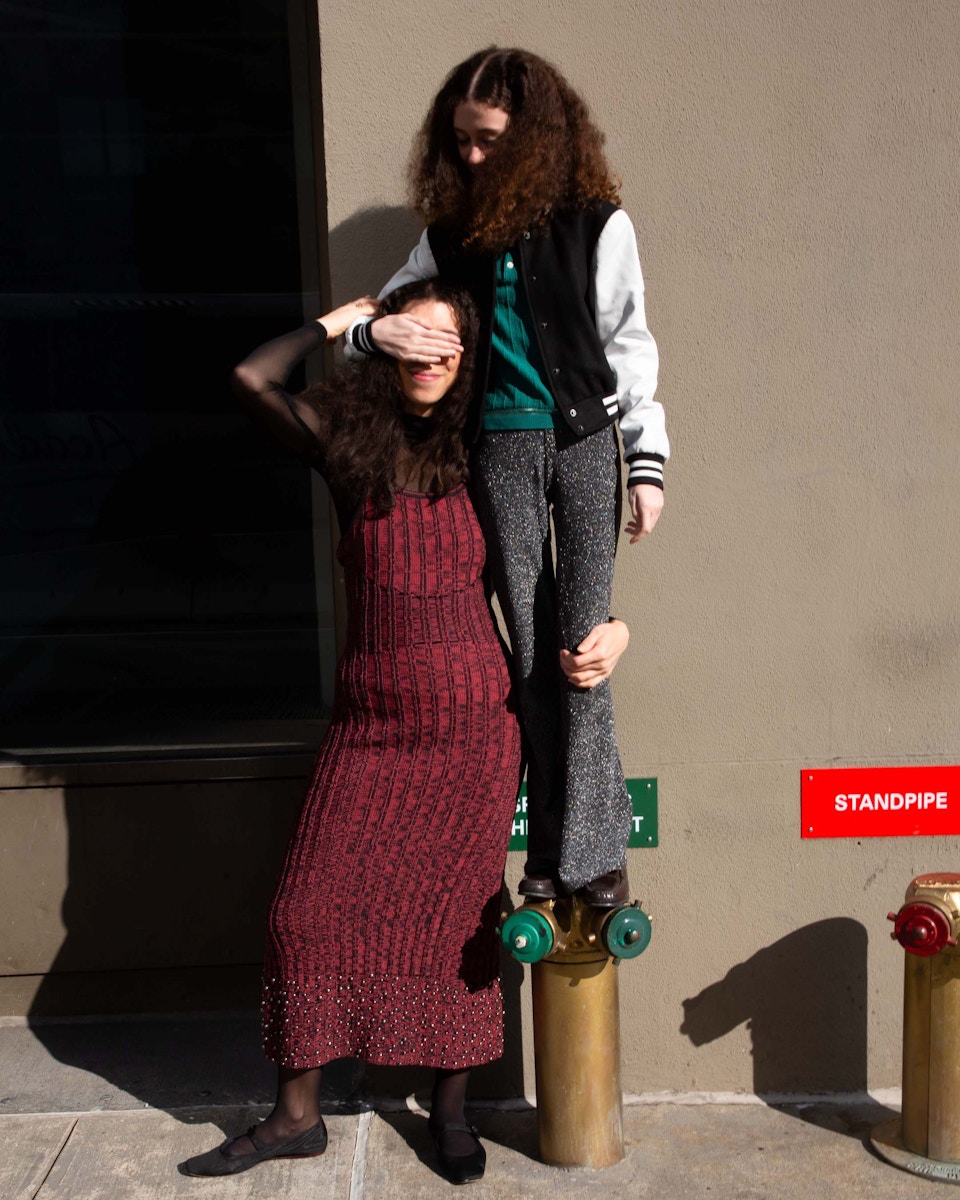
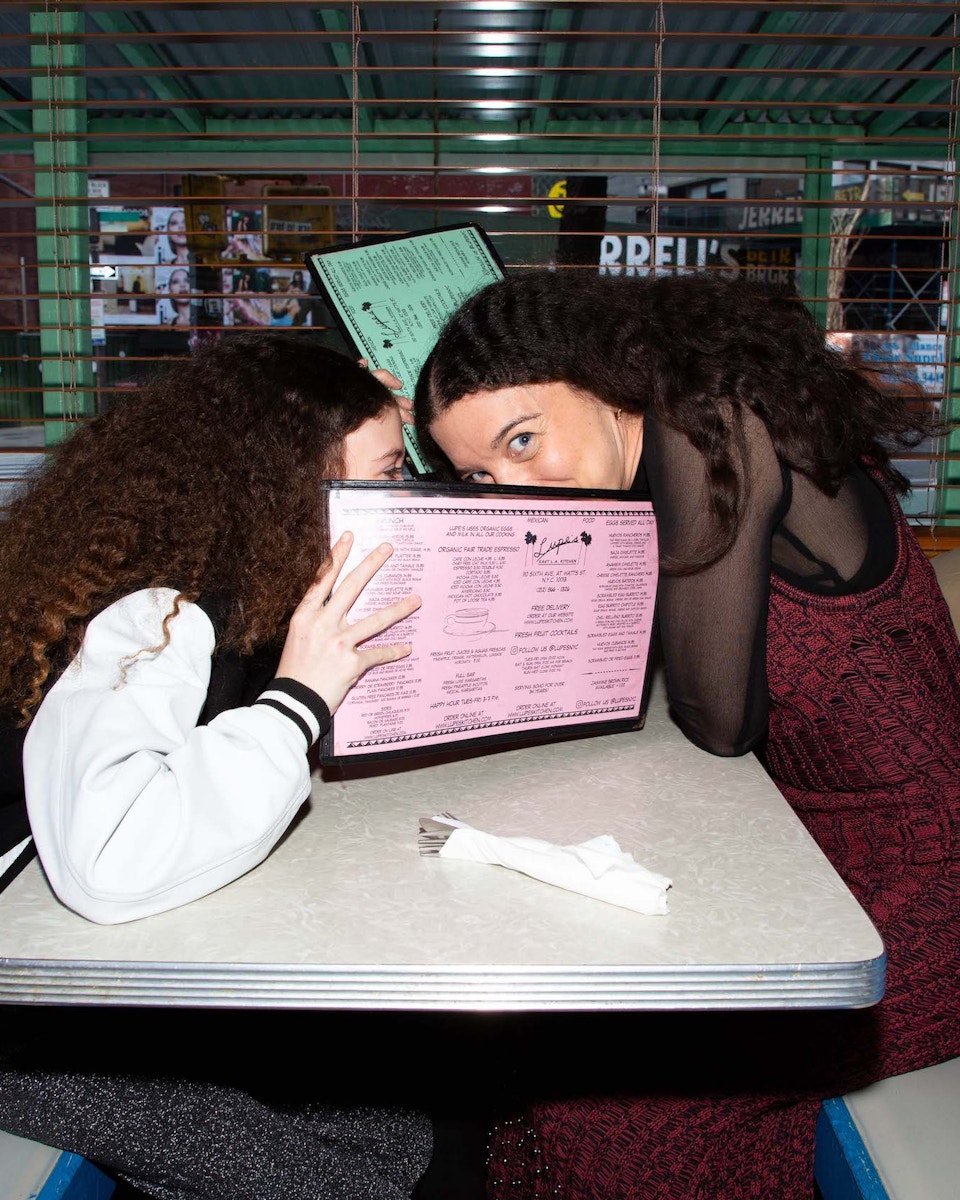
When we say it takes a village, we’re not talking about men
I think there’s a moment when kids get to be in their toddler years where a lot of adult romantic relationships dissipate. People realize that they didn’t need to be partners to each other or be married. At one point I Suddenly, I had a big influx of friends whose relationships were being dissolved, and people were reaching out to me like, you talking about this has let me know it’s even possible, because it’s so taboo. The idea that you would do this without a man… can you imagine? People have been doing this since the dawn of time. We’ve been doing it with each other. When we say it takes a village, we’re not talking about men. In the industrial era, we’ve become so disconnected from the way human mammals raise children in community with each other, not in some weird dick-measuring contest or competition that mothering has become…
"People have been doing this since the dawn of time. We’ve been doing it with each other. When we say it takes a village, we’re not talking about men."
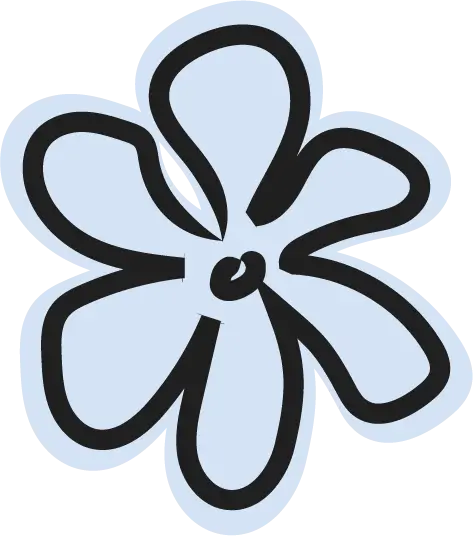
Just stay close
At this age I’m starting to see the results of the things I specifically told Matilda years ago—not molded her, but instilled in her. The temptation feels like, Oh, I'm gonna program this kid to do exactly the things that I think that she should do. But what I'm realizing is the fruit has been like, doing what I can while we're in the moment to make it count then. Or instill the values, or… let her know where to center her attention. The result is out of my control, but the work that I'm doing now is what nets itself out in five years. She’s 11 now and before I know it is going to be a 16-year old. There are tons of studies now that say that teenagers actually need more time with their parents, just in a different way than what we're used to applying. It needs to be more casual, unstructured interaction. It’s not like, okay, from 2 to 2:45, we're gonna sit on the floor and play Legos. It’s more subtly moving them into adulthood…. Matilda and I are so attached because it’s just been the two of us for her whole life. I'm sure there's maybe a reckoning moment with that at some point in the future. The thing that has worked for me so far has just been staying close. Not hovering, not trying to manipulate and control what's happening in her life, but just being around her.
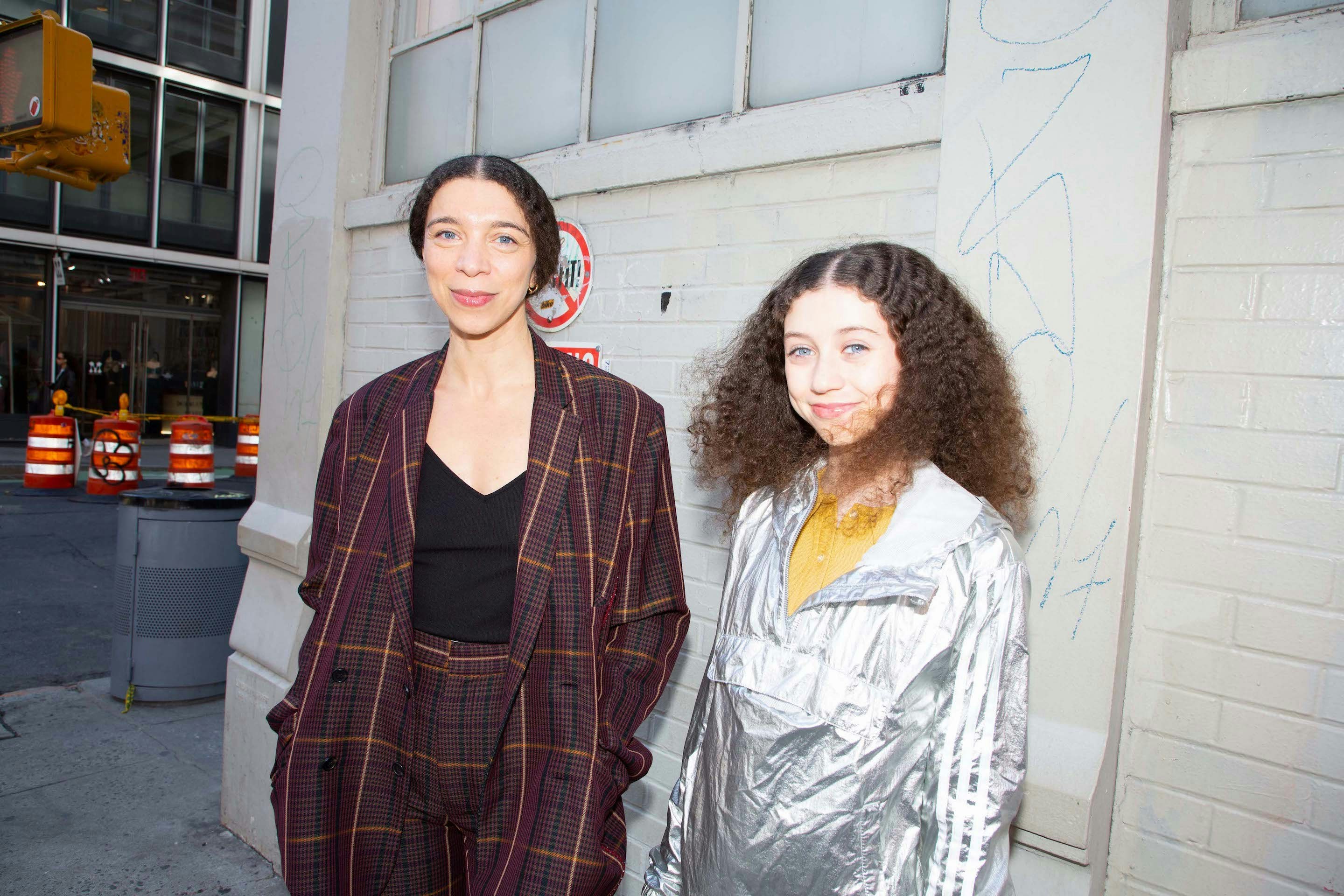
Raising a young woman
It’s not nothing to be raising a kid who's going through puberty at a time when women's rights are being dismantled. I took her to a demonstration at Foley Square when Roe V. Wade was being dismantled just to like, let her scream, ‘my body, my choice.’ When you have a little girl, the concept of their womanhood is abstract. You know that one day, or you hope, that one day she’ll be an adult, god willing. She is increasingly becoming a young woman. There are so many amazing things about it that are very healing to me—not that your child should be a tool for therapy, but I was so unhappy with myself and at that age. I have had such a fraught relationship with my parents, and so one of the things that I'm so grateful for is that she and I are quite close. She feels like she can talk to me about anything. And that I walk into the bathroom sometimes, and she's just, like, looking in the mirror, smiling at herself. She's genuinely looking in the mirror and she’s happy with herself.

"It’s not nothing to be raising a kid who's going through puberty at a time when women's rights are being dismantled. I took her to a demonstration at Foley Square when Roe V. Wade was being dismantled just to like, let her scream, ‘my body, my choice."

Parenting through ego
I don’t think it’s a good thing to use your children as your emotional support animal for solving your intergenerational issues. I would love to resolve my intergenerational issues and leave Matilda unburdened with any of that. But in this very therapy-forward society we’ve created where everyone is using therapy-speak for everything, there’s a temptation to use your kids as an accessory of to your ego. By the way, I’m saying this about myself, I’m not saying that this is something that other people are doing wrong. The temptation and the ease of slipping into that is really there right now because of the way we structure ourselves and also because the psychic burden of scrutiny largely falls on mothers. I know there are loads of different identities, and I know that some people don’t consider themselves mothers but consider themselves parents. I know that there are families that have different psychic burden and labor distributions and I am not trying to make generalizations but in general, that shit tends to fall on the moms.
One thing that I’ve seen in this last 10 years of parenting, and maybe this was true before and I just didn’t know because I was too busy drinking and going out, is this thing of ‘my child and my parenting is an extension of my ego’. Ego being the way you see yourself. And anything negative about that is too painful to cope with. I see this with a lot of parents: Your child has done something wrong or has harmed someone. And instead of approaching it with gentle community-based reparation, you’re approaching it from, My child has absolutely never done anything wrong and never will in their life. Their ego is so deeply connected to their child that for the child to have done something wrong reflects on them and their view of themselves. The ego thing has been the thing I’ve learned the most from my community, either through observation or through modeling.
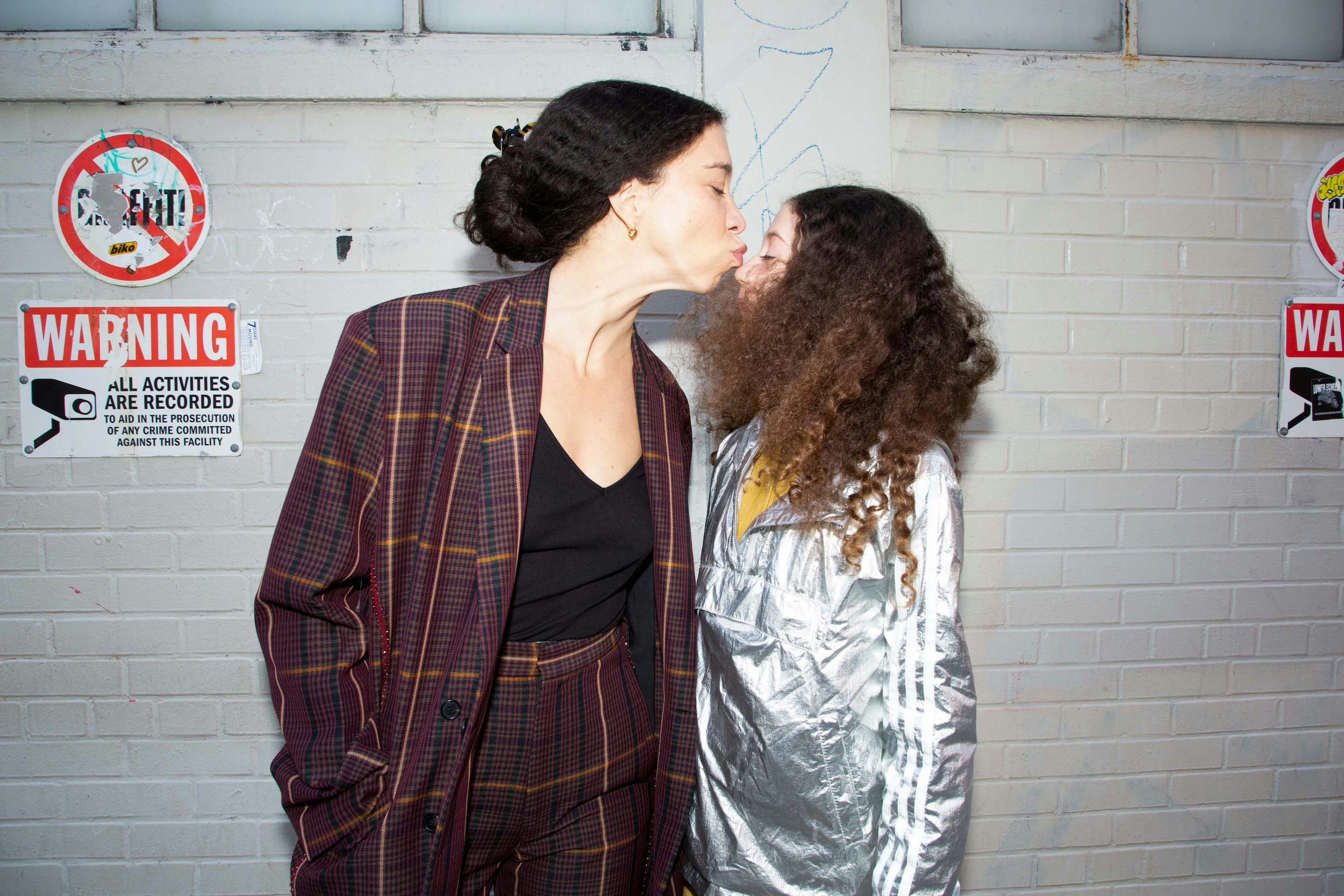

"I don’t think it’s a good thing to use your children as your therapy dog for solving your intergenerational issues. I would love to resolve my intergenerational issues and leave Matilda unburdened with any of that. But in this very therapy-forward society we’ve created where everyone is using therapy-speak for everything, there’s a temptation to use your kids as an accessory of your ego."
Everything is a mirror
One of the things that’s uncomfortable about parenting is that everything is a mirror, and I know that sounds so egotistical, but what I mean is… I'll give you an example, actually. When Matilda was really small, we were walking home one day on a big, trafficy street. This girl, probably around Matilda’s age now, came running past us, so close that I could feel the wind rushing past my skin, and I heard this woman yelling and running after her. It was clearly her mom. They were like, two different sizes of the same person. And she caught her, and in the process of catching her fell on top of her. So her preteen daughter is hysterically crying and obviously very angry. The mom is super, super angry. If we're gonna project, we think that the kid did something wrong and the mom’s really mad. The mom falls on this kid and she’s quite a bit bigger than her, so it was a very physical thing to have happened. I was thinking about how when you see things like that on the street, your natural reaction is like, Oh, that will never happen to me and my child. But when you really break it down, it’s like, That could happen to anyone. There are a series of microdecisions and choose-your-own-adventure moments that happen every day, [and] all it takes is for you to have your eye off the ball for a moment… And the end result looks, from the outside, like something that you would never do, but the fact of the matter is you will one day be in that same scenario, even if it’s not that you fell on your kid on the sidewalk in public and you’re yelling at them. There’s some parallel to that in your life though.
Horizontal hostility
I’ve spent 11.5 years having the everyday experience of encountering how the world would like me to disappear or hide parts of myself in order to be more comfortable day to day. That has rewired my brain. The horizontal hostility that mothers show each other… It was bad when Matilda was small. I look at some of my friends who are public figures having babies and the way that people speak to them about their parenting, their decisions, their thought train, what they share on the Internet… men are not in the comments being like, Bro, you need to hold that baby from the stomach.
But seriously, we are the only ones doing that and it benefits no one. It doesn’t even benefit the people who are oppressing us, it just serves to keep us oppressed. In this hyper-competitive modern Kardashian world that we live in, one of the things that could ease the burden a little bit is really letting go of that horizontal hostility and realizing that everyone is having their own experience and no one is exempt from going through what people are going through. When Matilda was a baby and people found out I was a solo parent, a lot of the people who were like, I could never do that, are - in fact - doing that right now. You said that you couldn’t do it, and here you are doing it! You don’t know what the world is going to bring you, and you don’t yet know what you’re capable of. Let’s all treat one another a little more kindly. I could say that about regular non-parents also, but I feel like with mothers, it’s especially pernicious right now.
